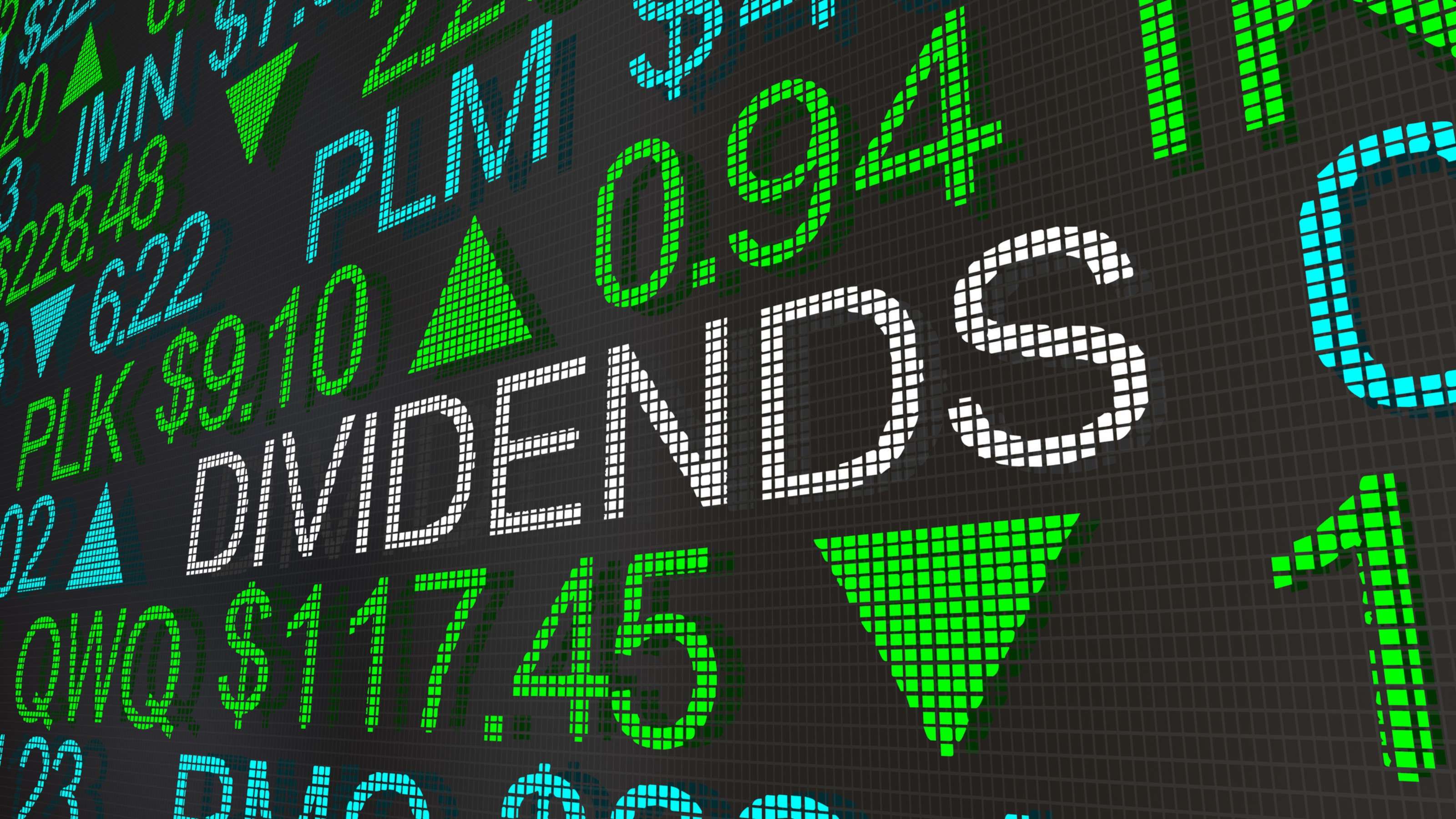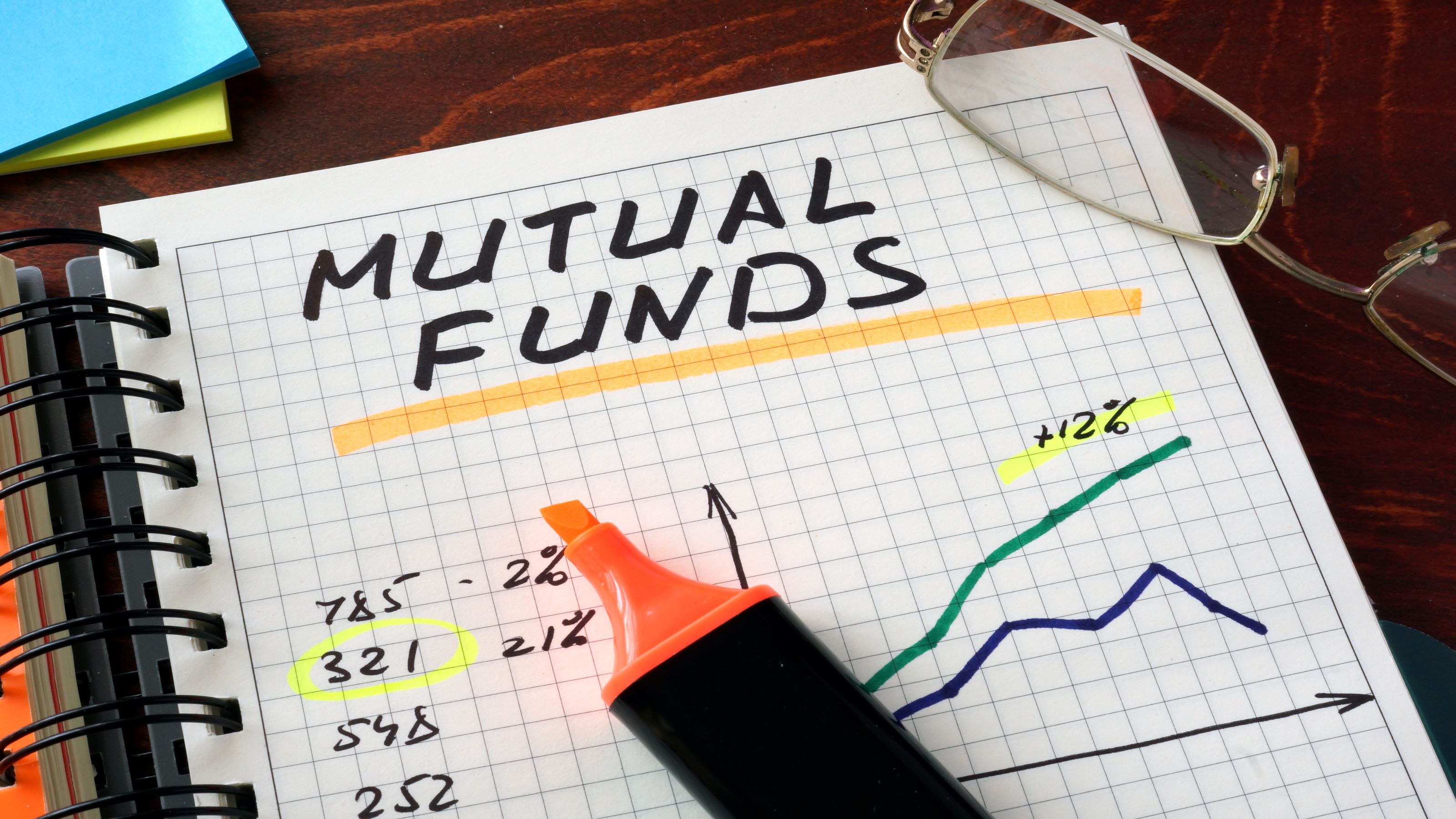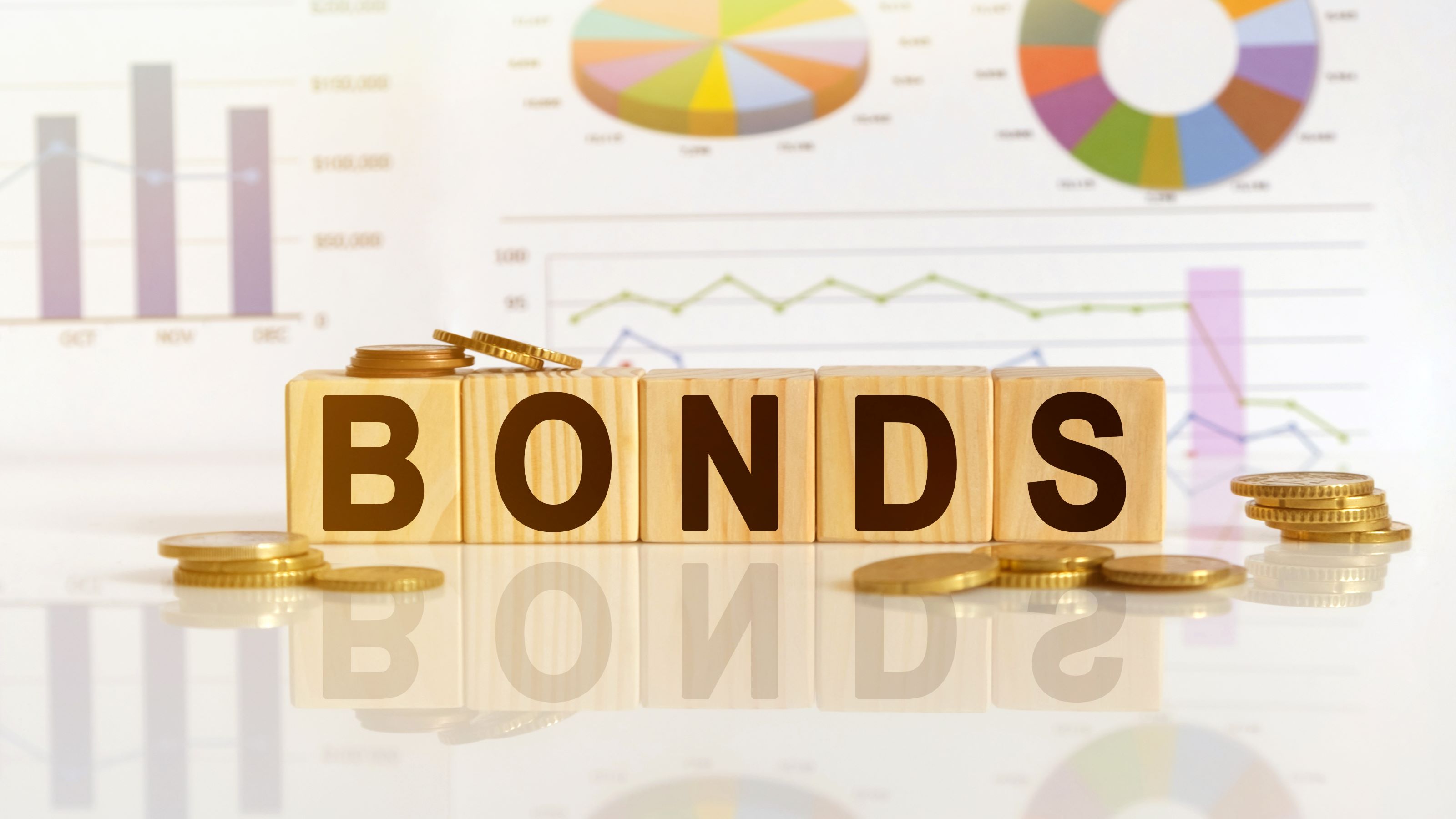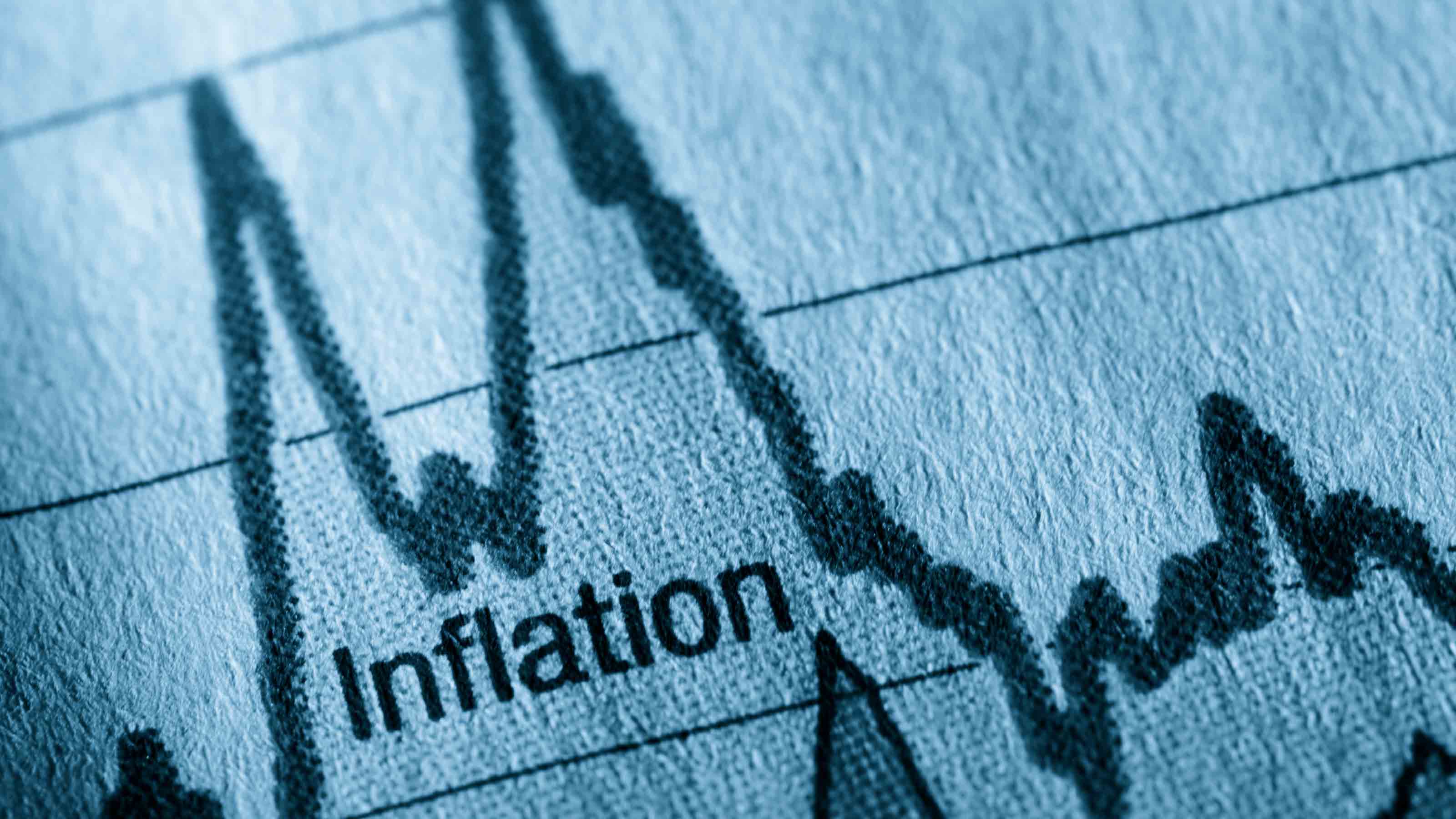A Bumper Crop of Fantastic Retirement Funds
Retirees and those nearing the end of their careers must consider growth, income and safety for their investments. Here are 10 mutual funds and ETFs that keep those requirements in mind.


Profit and prosper with the best of Kiplinger's advice on investing, taxes, retirement, personal finance and much more. Delivered daily. Enter your email in the box and click Sign Me Up.
You are now subscribed
Your newsletter sign-up was successful
Want to add more newsletters?

Delivered daily
Kiplinger Today
Profit and prosper with the best of Kiplinger's advice on investing, taxes, retirement, personal finance and much more delivered daily. Smart money moves start here.

Sent five days a week
Kiplinger A Step Ahead
Get practical help to make better financial decisions in your everyday life, from spending to savings on top deals.

Delivered daily
Kiplinger Closing Bell
Get today's biggest financial and investing headlines delivered to your inbox every day the U.S. stock market is open.

Sent twice a week
Kiplinger Adviser Intel
Financial pros across the country share best practices and fresh tactics to preserve and grow your wealth.

Delivered weekly
Kiplinger Tax Tips
Trim your federal and state tax bills with practical tax-planning and tax-cutting strategies.

Sent twice a week
Kiplinger Retirement Tips
Your twice-a-week guide to planning and enjoying a financially secure and richly rewarding retirement

Sent bimonthly.
Kiplinger Adviser Angle
Insights for advisers, wealth managers and other financial professionals.

Sent twice a week
Kiplinger Investing Weekly
Your twice-a-week roundup of promising stocks, funds, companies and industries you should consider, ones you should avoid, and why.

Sent weekly for six weeks
Kiplinger Invest for Retirement
Your step-by-step six-part series on how to invest for retirement, from devising a successful strategy to exactly which investments to choose.
Benjamin Franklin famously said that the only two certainties in life are death and taxes. In the 21st century, we can add a third: the need to save for retirement.
The traditional pension plan is all but extinct in the private sector and isn't as generous as it used to be in the public sector. And Social Security, while certainly a nice baseline of income, generally won't be enough to pay all your bills.
The average retirement lasts about 18 years, according to U.S. Census Bureau data. Consequently, any retirement funds need to focus not just on income but also growth.
"Our clients love income," says Rachel Klinger, president of McCann Wealth Strategies, a registered investment adviser headquartered in State College, Pennsylvania. "But if we don't give them growth as well, their accounts won't keep up with inflation. So we consider growth to be a critically important part of the plan."
That said, with stock valuations hitting levels last seen during the 1990s tech bubble, we need to be careful when selecting retirement funds. Suffering a bear market soon after you retire can deplete your portfolio and materially reduce your living standards for the rest of your life.
Brad Lamensdorf, CEO of money management firm ActiveAlts, says the stock market has "reached a point of over-expectation" as investors have come to expect returns far higher than historical norms. "We have been raising cash and adding hedges, as we expect more volatility in the coming months. You should protect yourself."
So along with growth and income, retirees and those nearing retirement also must consider safety, perhaps a little more than usual.
These 10 retirement funds were chosen with those concerns, as well as costs, in mind. All have reasonable, if not dirt-cheap, expense ratios. Each selection, spread across mutual funds and exchange-traded funds (ETFs) alike, can help round out a retirement plan and should be weighted according to your risk tolerance.
All returns are as of Sept. 2, 2021. Fund yields represent the trailing 12-month yield, which is a standard measure for equity funds, unless otherwise noted. ETFs do not have a minimum initial investment; you can buy as little as one share (or even fractional if your brokerage allows).

SPDR Portfolio S&P 500 ETF
- Assets under managment: $12.5 billion
- Dividend yield: 1.3%
- Expenses: 0.03%, or $3 annually for every $10,000 invested
- Initial minimum investment: N/A
We'll start with an investment in the S&P 500, which is a proxy for the broader U.S. stock market.
If you want exposure to some of the biggest, most prominent blue-chip growth stocks, an S&P 500 index exchange-traded fund is the cheapest, most tax-efficient option. The SPDR Portfolio S&P 500 ETF (SPLG, $53.29) is just that, providing access to S&P 500 stocks at an astoundingly low 0.03% in annual expenses. To put that in perspective, if you invest $10,000 in this fund, you'll only pay $3 in fees each year.
The S&P 500 has been a growth-compounding machine, crushing the vast majority of actively managed funds every year for more than a decade. Over the past one, three and five years, the index delivered total returns (price plus dividends) of 28.6%, 18.2% and 18.0%, respectively.
After drilling into the largest positions, it's easy to see why. Apple (AAPL), Microsoft (MSFT), Amazon.com (AMZN), Facebook (FB) and Google parent Alphabet (GOOGL) collectively account for more than 20% of the fund's assets.
The composition of the S&P 500 will change over time, of course, and it might not always be this tech-heavy in the future. But because the index is weighted by market capitalization, SPLG will always be a collection of the biggest and most dominant names in the market.
If you're looking for a core growth holding to add to your retirement funds, it's hard to do better than SPLG.

Fidelity Contrafund
- Assets under managment: $149.2 billion
- Dividend yield: 0.0%
- Expenses: 0.86%
- Initial minimum investment: None
For a solid, actively managed growth option, consider Fidelity Contrafund (FCNTX, $20.06), which William Danoff has managed for more than 30 years.
Although beating the S&P 500 is no easy task, Danoff has managed to do so over the past three, five and 10 years even after fees and expenses are factored in. Contrafund has returned 20.9%, 22.0% and 18.4% per year over those respective periods.
Danoff, like his mentor Warren Buffett, isn't shy about taking concentrated positions. His two largest positions – Facebook and Amazon – make up 10.3% and 8.1% of the portfolio, respectively. In an industry in which most managers are afraid to deviate too greatly from the S&P 500, Danoff's willingness to place large bets is commendable.
The Contrafund doesn't beat the market every year, of course. The fund actually trails the S&P 500 over the past 12 months, albeit with a still robust 23.0% return. If you're looking for a way to inject growth into your portfolio, the Fidelity Contrafund is one of the best retirement funds you can find.

Baron Emerging Markets Fund
- Assets under managment: $9.8 billion
- Dividend yield: 0.0%
- Expenses: 1.35%
- Initial minimum investment: $2,000
The U.S. has been the engine driving the world economy for decades, and its stock market has generously rewarded investors over its history. There are times, though, when foreign stocks, particularly emerging markets stocks, outperform. We might be starting one of those periods now.
Michael Kass, portfolio manager of the Baron Emerging Markets Fund (BEXFX, $19.23), wrote in his first-quarter letter to investors that he is optimistic that corporate earnings will deliver and he anticipates "a sustainable period of dollar weakness and relative outperformance for EM and international equities."
What direction the dollar takes from here remains to be seen, but whether the dollar goes up, down or sideways, having a little exposure to high-potential emerging markets can help round out the growth portion of your portfolio. Baron Emerging Markets – one of the Kiplinger 25, a list of our favorite no-load funds – owns some of the most exciting growth names in the developing world. It counts Taiwan Semiconductor (TSM), Alibaba Group (BABA) and Samsung among its largest holdings.
Baron Emerging Markets has returned 7.8% annually over the past 10 years. That might not sound like much, but it's no small accomplishment considering that investors have shied away from emerging markets at various points over the past decade. The fund's performance is also better than 91% of its category peers over that time frame.

Fidelity Dividend Growth Fund
- Assets under managment: $7.0 billion
- Dividend yield: 1.6%
- Expenses: 0.49%
- Initial minimum investment: None
For a nice combination of growth and income, consider Fidelity Dividend Growth Fund (FDGFX, $37.53).
While it is indeed a dividend fund, the focus isn't yield, which at a modest 1.6% is just barely better than the S&P 500's 1.3%. Instead, FDGFX is a collection of companies that have a history of paying and raising dividends over time, or that Fidelity management believes will pay higher dividends in the future.
Morningstar categorizes Fidelity Dividend Growth as a U.S. large value fund, and its top positions do include the likes of JPMorgan Chase (JPM), Wells Fargo (WFC) and Bank of America (BAC) from the value-oriented financial sector. Also included among its 10 largest holdings are some familiar growth names, such as Microsoft, Apple and Walt Disney (DIS). The fund's emphasis on dividends and value provides a degree of diversification, as value funds and growth funds each tend to go through periods of outperformance relative to each other.
Stock funds are still stock funds, of course, and virtually all of them would take losses in a bear market. Still, FDGFX has weathered things well over the medium and long term, which is an attractive trait among retirement funds. In fact, this Fidelity product is sitting around the top third of all category funds over the trailing three and five years, and in the top 30% over the past 15 years.

Vanguard Real Estate Index Fund Admiral Shares
- Assets under managment: $46.0 billion
- Dividend yield: 2.9%
- Expenses: 0.12%
- Initial minimum investment: $3,000
Real estate offers a nice combination of income, inflation protection and a little growth that you generally won't find elsewhere. Given that property ownership and management are impractical for most retirees, however, a fund that specializes in real estate investment trusts (REITs) generally tends to be the best alternative.
Vanguard Real Estate Index Fund Admiral Shares (VGSLX, $157.14) is a cost-effective way to get access to REITs, which are required to pay out at least 90% of their taxable income to shareholders in the form of dividends. As a result, REITs tend to be one of the best-yielding sectors; Vanguard Real Estate Index delivers a yield of nearly 3% at current prices.
Of course, not all real estate is created equally.
"We focus on sectors in which the economics favor the landlord over the tenant," says Burland East, CEO of American Assets Capital Advisers, an institutional money management firm with approximately $1 billion in assets under management. "While it might be relatively easy for an office tenant to renegotiate a lease in this environment, it's a lot harder for a data center client to pack up and move. We see the best potential in the sectors and companies that have monopolistic or oligopolistic structures in place allowing landlords to increase rent and values over long periods."
Vanguard's fund has a high concentration in specialized REITs, such as cell tower landlords American Tower (AMT) and Crown Castle International (CCI), logistics REIT Prologis (PLD) and data center real estate play Digital Realty Trust (DLR). Collectively, specialized REITs make up about 38% of the portfolio. Office REITs, which seem somewhat risky in the post-COVID world of working from home, make up only 7%.
If you're looking for retirement funds that provide cost-effective exposure to REITs, VGSLX and its 0.12% expense ratio seem a fitting place to start. The same portfolio is also available in ETF form via the Vanguard Real Estate ETF (VNQ).

Vanguard Wellington Fund Investor Shares
- Assets under managment: $122.9 billion
- Dividend yield: 1.6%
- Expenses: 0.24%
- Initial minimum investment: $3,000*
While the stock market has generated tremendous wealth over the decades, there are long stretches when stocks struggle. The S&P 500, for example, essentially went nowhere between 2000 and 2013.
This is why diversification matters. For instance, blending in bonds and cash equivalents can reduce volatility and stabilize portfolio returns over time, even if that means lower returns during raging bull markets.
Enter the Vanguard Wellington Fund Investor Shares (VWELX, $50.61), another member of the Kiplinger 25.
Wellington, founded in 1929, is the oldest mutual fund in the Vanguard fund family. It also happens to be the oldest balanced fund in America. "Balanced" doesn't necessarily mean boring. The fund keeps about 66% of its portfolio in equities, which is significantly higher than the 60% in the traditional 60/40 split many financial advisers favor.
The returns certainly haven't disappointed. Wellington returned 13.4% and 12.2% annually over the past three and five years, respectively, putting it among the top 15% of its category peers. The fund stands out even more long term, with 11.6% and 8.9% returns in its trailing 10- and 15-year periods to rank within the top 10% of peers. Meanwhile, Wellington has generated annual returns of 8.4% since its founding in 1929.
Apart from a rough few years during the Great Depression of the 1930s and the stagflation of the 1970s, the fund has had minimal significant drawdowns, clearly surviving the test of time. It's difficult to find many retirement funds with such a strong (and extensive) track record.
* Note: Although Wellington is currently closed to new investors, you can still purchase it directly through a Vanguard brokerage account. If you don't have a Vanguard account, you might consider the actively managed Fidelity Balanced (FBALX), which charges 0.52% annually, or Vanguard Balanced (VBIAX), an indexed product that costs just 0.07% in annual expenses.

Vanguard Short-Term Investment-Grade Fund Investor Shares
- Assets under managment: $78.7 billion
- SEC yield: 0.8%*
- Expenses: 0.20%
- Initial minimum investment: $3,000
Having liquidity during times of market stress is a large part of what has made Warren Buffett's success over the years possible. Buffett's cash on hand allowed him to be, in his words, "greedy when others are fearful." You can't buy dips if you don't have the cash available to do it with.
Of course, it's nice if you can earn a little interest on that cash, which isn't particularly easy to do with the Fed continuing to anchor rates near zero. That's where short-term bonds come in.
Vanguard Short-Term Investment-Grade Fund Investor Shares (VFSTX, $10.97) is a short-term bond fund with a roughly 0.8% yield. That's not get-rich-quick money by any stretch, but it's a respectable yield to collect in this environment just for keeping your money on the sidelines.
Importantly, the fund has little risk of loss from hikes in interest rates or sustained rises in bond yields. The average effective maturity of its holdings is less than three years. Credit risk is also of minimal concern, as 98% of holdings are investment-grade and most are rated A or higher.
Again, you're not going to build wealth by adding VFSTX to your portfolio of retirement funds. But it is a convenient place to park cash that you're not quite ready to invest or prefer to hold in reserve.
* SEC yield reflects the interest earned after deducting fund expenses for the most recent 30-day period and is a standard measure for bond and preferred-stock funds.

DoubleLine Total Return Bond Fund Class N
- Assets under managment: $47.9 billion
- SEC yield: 2.9%
- Expenses: 0.75%
- Initial minimum investment: $2,000
For a more actively managed approach to bond investing, consider the DoubleLine Total Return Bond Fund Class N (DLTNX, $10.58).
Managed by "Bond King" Jeffrey Gundlach, DLTNX is an eclectic collection of fixed-income assets you might not find in a lot of other bond funds, though it is primarily invested in mortgage-backed securities and related assets.
An investment in the DoubleLine fund is very much a bet on Jeffrey Gundlach's active management, as the annual turnover is more than 90%. That's not necessarily a bad thing. Although returns have been sluggish over the short and medium term, the fund has provided far less risk than most of its category peers, and Gundlach boasts just one losing year since the fund's 2010 inception – a miniscule 0.23% loss in 2013.
Gundlach has enjoyed a long career as an astute bond fund manager, and the active trading makes the fund a good diversifier to any bond index funds you might own.

iShares TIPS Bond ETF
- Assets under managment: $33.7 billion
- Real yield: -1.4%*
- Expenses: 0.19%
- Initial minimum investment: N/A
The Federal Reserve has been insisting for months that any spike in inflation will be "transitory" and will quickly dissipate once the bottlenecks associated with the post-COVID reopening are worked through. Because the Fed is run by some of the smartest policy wonks alive and they have access to data that the rest of us don't, we should take their words seriously.
But what if they're wrong? The central bank certainly isn't infallible, and its policy actions over the past year are well into uncharted territory. The Fed expanded its balance sheet by more than $4 trillion even while Congress was authorizing stimulus payments and beefing up unemployment benefits to boost spending.
So what if – just if – higher inflation isn't transitory?
As a precaution, owning some inflation-adjusted bonds is a good idea. The Treasury's inflation-protected securities, known as TIPS, are bonds issued by the U.S. Treasury with a built-in inflation adjustment. The iShares TIPS Bond ETF (TIP, $128.80) is an inexpensive way to get access to this asset class.
There are several things to like here. First, the securities this fund holds are all issued by the U.S. government. Credit risk is microscopic, as Uncle Sam is considered virtually risk-free. Second, the bonds have an effective maturity of eight years, which is mid-range for bonds. If market bond yields escalate from here, the potential damage will be modest. (Bond prices fall when yields rise, behavior that is typically more pronounced the longer the bond's duration.)
We can't know for sure what the future will hold, but if inflation really does get out of hand, TIPS will provide protection in a way most retirement funds simply can't.
* Real yield is adjusted for inflation.

SPDR Gold Minishares
- Assets under managment: $4.6 billion
- Dividend yield: N/A
- Expenses: 0.18%
- Initial minimum investment: N/A
Along the same lines, it makes sense to own a little gold, which is a natural inflation hedge and, more importantly, a dollar hedge.
While the dollar has been the pillar of the global financial system for decades, a once-in-a-century pandemic and the ensuing massive budget deficits are exactly the kind of thing that could upset that stability.
Jeffrey Gundlach, whose bond fund we recommended earlier, said in a June webcast: "Ultimately, I think gold will go much higher as the dollar falls and commodities broadly have a further significant leg to the rally that began 15 months ago."
Because gold can be volatile, you probably shouldn't hold an outsize position in it. A modest position (5% or less), however, offers diversification and a hedge against inflation or dollar depreciation.
One cost-effective way to invest in gold is via the SPDR Gold MiniShares (GLDM, $18.00), which represent a sliver of ownership in a portfolio of gold bullion stored in vaults. If you ask most investors to name a gold fund, chances are they'll think of GLDM's larger sibling, the SPDR Gold Shares (GLD), which provides similar exposure to gold. The MiniShares fund, though, is a better deal for buy-and-hold investors.
In fact, SPDR launched the MiniShares fund in 2018 with thrifty retail investors in mind. At 0.18% in annual expenses, it costs less than half as much as GLD, which charges 0.40%. Why pay more if you don't have to?
Profit and prosper with the best of Kiplinger's advice on investing, taxes, retirement, personal finance and much more. Delivered daily. Enter your email in the box and click Sign Me Up.

Charles Lewis Sizemore, CFA is the Chief Investment Officer of Sizemore Capital Management LLC, a registered investment advisor based in Dallas, Texas, where he specializes in dividend-focused portfolios and in building alternative allocations with minimal correlation to the stock market.
-
 Quiz: Do You Know How to Avoid the "Medigap Trap?"
Quiz: Do You Know How to Avoid the "Medigap Trap?"Quiz Test your basic knowledge of the "Medigap Trap" in our quick quiz.
-
 5 Top Tax-Efficient Mutual Funds for Smarter Investing
5 Top Tax-Efficient Mutual Funds for Smarter InvestingMutual funds are many things, but "tax-friendly" usually isn't one of them. These are the exceptions.
-
 AI Sparks Existential Crisis for Software Stocks
AI Sparks Existential Crisis for Software StocksThe Kiplinger Letter Fears that SaaS subscription software could be rendered obsolete by artificial intelligence make investors jittery.
-
 Stocks Make More Big Up and Down Moves: Stock Market Today
Stocks Make More Big Up and Down Moves: Stock Market TodayThe impact of revolutionary technology has replaced world-changing trade policy as the major variable for markets, with mixed results for sectors and stocks.
-
 Small Caps Step Up, Tech Is Still a Drag: Stock Market Today
Small Caps Step Up, Tech Is Still a Drag: Stock Market TodayEarly strength gave way to AI skepticism again as a volatile trading week ended on another mixed note.
-
 AI Unwind Takes 2% Off the Nasdaq: Stock Market Today
AI Unwind Takes 2% Off the Nasdaq: Stock Market TodayMarkets are paying more and more attention to hyperscalers' plans to spend more and more money on artificial intelligence.
-
 Strong Jobs Report Leaves Markets Flat: Stock Market Today
Strong Jobs Report Leaves Markets Flat: Stock Market TodayInvestors, traders and speculators are taking time to weigh the latest labor market data against their hopes for lower interest rates.
-
 Dow Hits New High Ahead of January Jobs Report: Stock Market Today
Dow Hits New High Ahead of January Jobs Report: Stock Market TodayA weak reading on December retail sales was in focus ahead of Wednesday's delayed labor market data.
-
 Tech Stocks Fuel Strong Start to the Week: Stock Market Today
Tech Stocks Fuel Strong Start to the Week: Stock Market TodayThe blue-chip Dow Jones Industrial Average extended its run above 50,000 on Monday and there are plenty of catalysts to keep the 30-stock index climbing.
-
 Dow Adds 1,206 Points to Top 50,000: Stock Market Today
Dow Adds 1,206 Points to Top 50,000: Stock Market TodayThe S&P 500 and Nasdaq also had strong finishes to a volatile week, with beaten-down tech stocks outperforming.
-
 Stocks Sink With Alphabet, Bitcoin: Stock Market Today
Stocks Sink With Alphabet, Bitcoin: Stock Market TodayA dismal round of jobs data did little to lift sentiment on Thursday.
